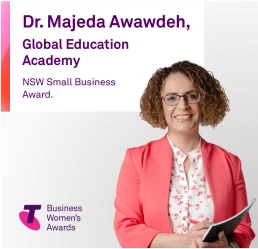For some children reading is an incredibly difficult task. They just don’t process text in the same way children without difficulty do. Too often parents and teachers cannot identify the specific problems the child has, and so don’t know how to teach the child to read successfully. Reading then becomes a task to be endured rather than enjoyed.
Global Education Academy can change that for your child and set them on a pathway of reading success – one that will have your child eager to read to their teachers and parents, and feel inspired to practise every day.
All of the reading resources for children with Reading Processing Difficulty are written by Susanna – one of our tutors. Her reading continuum has 7 levels from pre-school to high school and is specifically designed to promote enjoyment in reading, as well as teach strategies to ensure reading success.
Following assessment children are placed on their exact instructional level and then guided through each level at a pace appropriate to the skills each child is demonstrating. All levelled stories are age-appropriate – this is often an area of difficulty for schools who too often provide older students with materials designed for younger readers, because their levels of reading acquisition are equivalent to the younger age group. This does not inspire these older students to practise and showcase their skills! Rather it is a source of embarrassment for them.
Does your child have Reading Processing Difficulty? Here are some common characteristics:
o Text is jumbled
o Text does not sit still on the page
o Text is read backwards
o Text information is stored and not retrievable
o Text cannot be sounded out due to auditory processing difficulties
o Text cannot be blended due to auditory processing difficulties
o Text sounds cannot be pronounced correctly due to auditory problems
o Students find it difficult to focus for more than a few seconds and begin yawning – this is because the child is using up more oxygen and tires more quickly
o Students exhibit fidgety behaviours and find it difficult to concentrate
o Slow processing of text – receptive and expressive difficulties
o Words too difficult to read – do not follow regular sound patterns
o Difficulty reading ‘wh, th, ev, ve, ere, s, en, ed, ent, end’ words (where, there, ever, very, were, plurals, opened, ending)
There are many more characteristics – every child is different!







